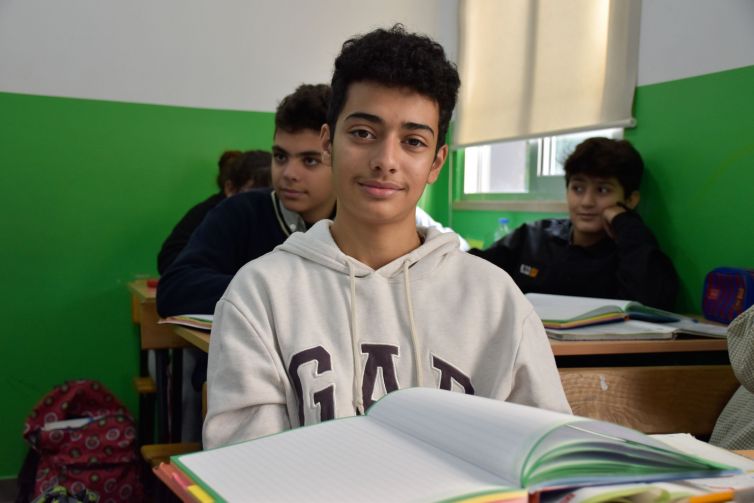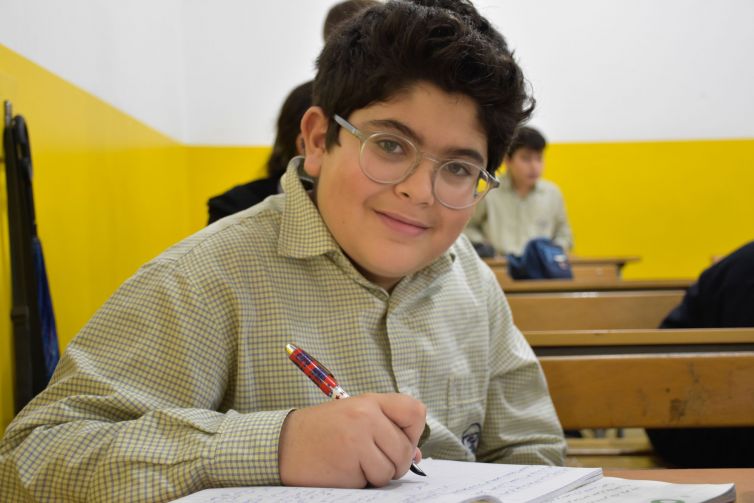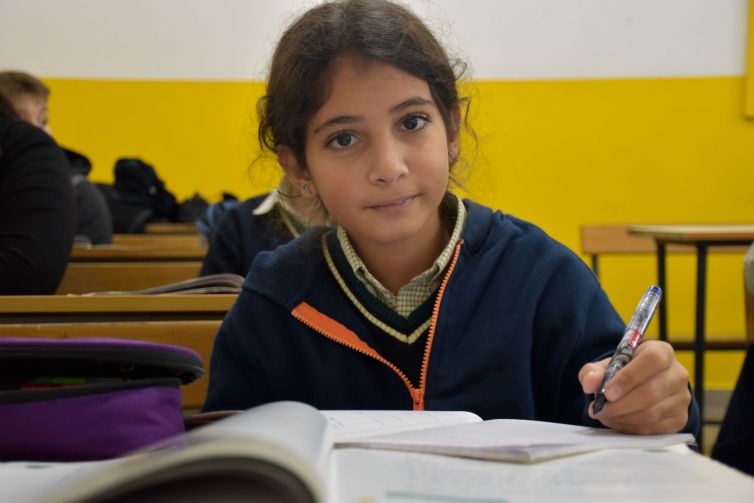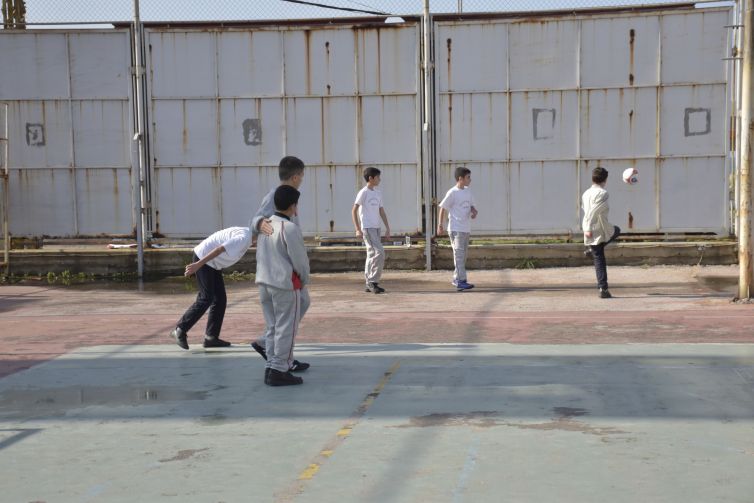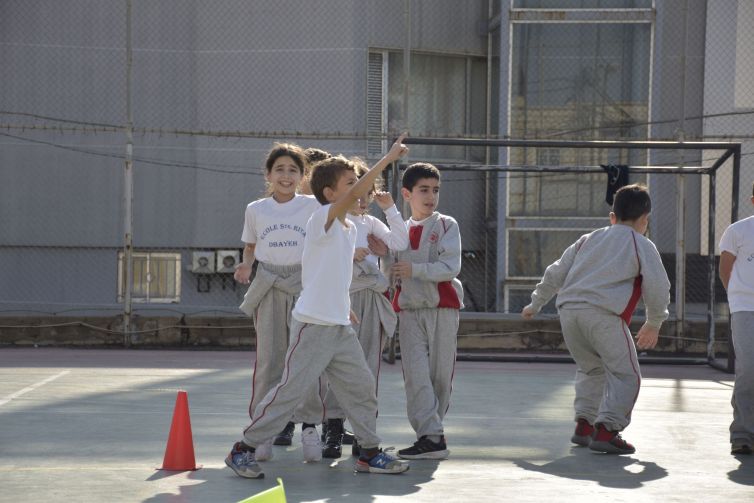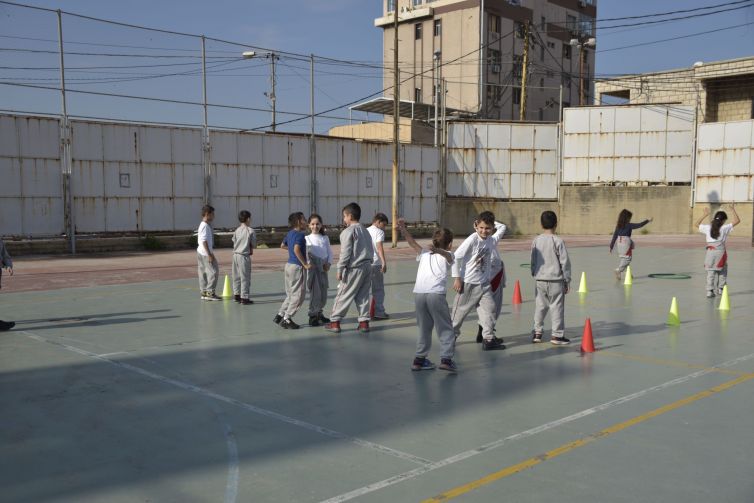The Lebanese education system, a long-standing symbol of national pride, is now teetering on the brink of collapse, with many vulnerable children facing the prospect of never returning to school. The World Bank has identified five major crises currently plaguing it, including the Syrian crisis, economic collapse, political instability, COVID-19 pandemic, and the Beirut port explosion.
In this unfortunate context, poverty represents a significant obstacle, with many families unable to afford basic school supplies or compelled to rely on their children to provide a complementary income. Nonetheless, education remains a paramount priority for Lebanese households, where parents are willing to make significant sacrifices to secure their children’s access to education.
"One father had to sell the fridge of the house for $200, to afford his children’s school tuition”, reports Ghida Ibrahim from Our Lady of Hope Foundation.
Our Lady of Hope is an NGO for Education and Teaching, created in 1987 on an initiative of Fattal Group. Its mission is to provide Lebanese children coming from disadvantaged social backgrounds with equal access to education, regardless of gender, religion, or location.
School selection process
The NGO focuses on private schools in vulnerable regions far from Beirut that are at risk of closing, and works closely with the schools to ensure that the funds provided are used transparently and effectively. “We had to disqualify many schools due to a wrong management of the money, or a lack of transparency”, says Ghida Ibrahim.
Student selection process
The organization primarily serves students in grades 6 through 9, as this age range is at the highest risk of dropping out of school. Priority is given to families with no fixed income, or with members suffering from chronic illnesses. The students’ academic performance and willingness to learn are examined as well.
“The NGO's goal is to help these students achieve their Brevet (Middle School Diploma), which will open up many opportunities for them, including the ability to continue on to high school or attend a technical institute. For students who are serious about continuing their education and still need support, the NGO will also provide financial assistance throughout high school”, states Nicole Abdel Ahad, one of the NGO’s representatives.
ALAM - OLH partnership
ALAM partnered with Our Lady of Hope to help them support even more children in their quest for education. ALAM’s fund covered school fees for an additional 250 students, raising the number of supported children to 850 in 2021.
One school that benefited from this support is Saint Rita School, a private school in Dbayeh, Lebanon, that offers both academic and technical education. According to the school’s director, Father Samir Ghsoub, the school was on the brink of closing after losing about 1,000 students and being left with only 200 due to the financial situation. The school has remained open thanks to the support of the NGO and the sacrifices of teachers and parents.
“We are still open to this day thanks to the students, parents and teachers, who stood up and fought for the school to remain open. Teachers sacrificed their salaries for 2 years, which speaks to how much they care for these children and their future”, says Father Samir Ghsoub.
ALAM and Our Lady of Hope played a big role in keeping this school open by covering school fees for many students who were about to drop out.
However, despite the help provided, there are still many unmet needs, with schools like Saint Rita Dbayeh lacking basic infrastructure and needing funds to upgrade facilities such as interactive boards, roofed winter recreation areas, and theaters.
Also, many students still require support because education alone is not the solution to all their problems. Living in impoverished conditions undoubtedly has negative repercussions on children, and the assistance required goes well beyond just paying for school fees.
ALAM and Our Lady of Hope played a big role in keeping this school open by covering school fees for many students who were about to drop out.
However, despite the help provided, there are still many unmet needs, with schools like Saint Rita Dbayeh lacking basic infrastructure and needing funds to upgrade facilities such as interactive boards, roofed winter recreation areas, and theaters.
Also, many students still require support because education alone is not the solution to all their problems. Living in impoverished conditions undoubtedly has negative repercussions on children, and the assistance required goes well beyond just paying for school fees.
The demand for support remains high, and ALAM will continue to play a crucial role by ensuring that Lebanese children have access to education and feel secure regarding food, sanitation, healthcare and shelter.
With the help of donors from all over the world,
we can build a better future for Lebanon and its citizens.










